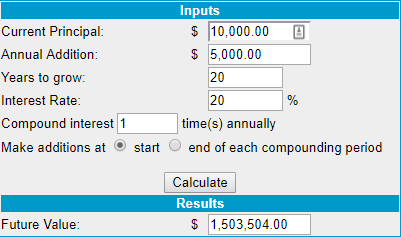
Long-term trading strategies can be a good way to make large profits. Be patient and ready to hold onto your position for a very long time. This strategy has numerous benefits. Profitable currency fluctuations will allow you to make money. It's not easy to invest in forex. You will need to understand the market and make the best trades, no matter if you're a novice or an expert trader.
Forex trading can be difficult for beginners. You might want to change your strategy if you have a string of bad trades. To see how profitable your skills are, you may want to open a demo trading account. After a few trades, it is possible to see that you can make significant gains. You shouldn't get discouraged if you lose a trade. This will not hinder your ability in the future to trade.
Long-term trading strategies will require a large amount of money. A large account can help you to stay afloat in times of market declines. A large margin is also a good thing for traders who trade short-term. It is best to not use too many leverage in your forex trades. A small percentage of your margin is better. This will help reduce the risk of trading in forex markets.

The market must be analysed and a forecast of the price movements will be made. You will also need to set a stop-loss for every trade. Every trade should have a profit target. It is important that you remain calm and focused even during market volatility.
You should select a reliable broker to start trading long-term strategies. To be able to invest in the forex market, you will need a substantial capital. You won't be able sustain short term market swings if your account is small.
To be successful in forex trading long term, you need to study the price action over longer periods of time. It can also be affected by changes to the monetary policy. It is important to understand the direction of the economy. This will help you determine your trading position. You should only buy when the price rises above the MA (50 day moving average). This means that the forex market trend is up.
Also, you should not close trades without giving notice. You should also ensure that you set a stop-loss in proportion to the time frame. You may lose your chance to make a profit if you close a trade too soon.

Retail traders would benefit greatly from a long term forex trading strategy. This strategy is popular with large investors. For example, Warren Buffet bought dips in the stock market during the 2008 financial crisis.
FAQ
What is the difference in marketable and non-marketable securities
The main differences are that non-marketable securities have less liquidity, lower trading volumes, and higher transaction costs. Marketable securities on the other side are traded on exchanges so they have greater liquidity as well as trading volume. They also offer better price discovery mechanisms as they trade at all times. However, there are many exceptions to this rule. For example, some mutual funds are only open to institutional investors and therefore do not trade on public markets.
Non-marketable securities tend to be riskier than marketable ones. They usually have lower yields and require larger initial capital deposits. Marketable securities tend to be safer and easier than non-marketable securities.
A large corporation may have a better chance of repaying a bond than one issued to a small company. The reason is that the former is likely to have a strong balance sheet while the latter may not.
Because they are able to earn greater portfolio returns, investment firms prefer to hold marketable security.
What is security at the stock market and what does it mean?
Security is an asset that generates income. Shares in companies is the most common form of security.
There are many types of securities that a company can issue, such as common stocks, preferred stocks and bonds.
The earnings per shared (EPS) as well dividends paid determine the value of the share.
If you purchase shares, you become a shareholder in the business. You also have a right to future profits. If the company pays a payout, you get money from them.
You can sell your shares at any time.
What is a REIT?
An REIT (real estate investment trust) is an entity that has income-producing properties, such as apartments, shopping centers, office building, hotels, and industrial parks. These companies are publicly traded and pay dividends to shareholders, instead of paying corporate tax.
They are similar to corporations, except that they don't own goods or property.
What are the benefits of stock ownership?
Stocks have a higher volatility than bonds. The value of shares that are bankrupted will plummet dramatically.
If a company grows, the share price will go up.
Companies usually issue new shares to raise capital. This allows investors to purchase additional shares in the company.
Companies can borrow money through debt finance. This gives them cheap credit and allows them grow faster.
A company that makes a good product is more likely to be bought by people. The stock price rises as the demand for it increases.
The stock price will continue to rise as long that the company continues to make products that people like.
How do I invest in the stock market?
Brokers can help you sell or buy securities. A broker sells or buys securities for clients. You pay brokerage commissions when you trade securities.
Brokers often charge higher fees than banks. Banks often offer better rates because they don't make their money selling securities.
An account must be opened with a broker or bank if you plan to invest in stock.
A broker will inform you of the cost to purchase or sell securities. This fee will be calculated based on the transaction size.
Your broker should be able to answer these questions:
-
The minimum amount you need to deposit in order to trade
-
If you close your position prior to expiration, are there additional charges?
-
What happens if your loss exceeds $5,000 in one day?
-
How many days can you keep positions open without having to pay taxes?
-
What you can borrow from your portfolio
-
whether you can transfer funds between accounts
-
What time it takes to settle transactions
-
the best way to buy or sell securities
-
how to avoid fraud
-
How to get help when you need it
-
Can you stop trading at any point?
-
How to report trades to government
-
Whether you are required to file reports with SEC
-
How important it is to keep track of transactions
-
Whether you are required by the SEC to register
-
What is registration?
-
How does it affect you?
-
Who needs to be registered?
-
What time do I need register?
Statistics
- US resident who opens a new IBKR Pro individual or joint account receives a 0.25% rate reduction on margin loans. (nerdwallet.com)
- "If all of your money's in one stock, you could potentially lose 50% of it overnight," Moore says. (nerdwallet.com)
- Ratchet down that 10% if you don't yet have a healthy emergency fund and 10% to 15% of your income funneled into a retirement savings account. (nerdwallet.com)
- For instance, an individual or entity that owns 100,000 shares of a company with one million outstanding shares would have a 10% ownership stake. (investopedia.com)
External Links
How To
How to invest in the stock market online
Stock investing is one way to make money on the stock market. There are many options for investing in stocks, such as mutual funds, exchange traded funds (ETFs), and hedge funds. The best investment strategy depends on your risk tolerance, financial goals, personal investment style, and overall knowledge of the markets.
First, you need to understand how the stock exchange works in order to succeed. This includes understanding the different types of investments available, the risks associated with them, and the potential rewards. Once you have a clear understanding of what you want from your investment portfolio you can begin to look at the best type of investment for you.
There are three major types of investments: fixed income, equity, and alternative. Equity refers to ownership shares in companies. Fixed income is debt instruments like bonds or treasury bills. Alternatives include commodities like currencies, real-estate, private equity, venture capital, and commodities. Each category has its own pros and cons, so it's up to you to decide which one is right for you.
You have two options once you decide what type of investment is right for you. One strategy is called "buy-and-hold." You purchase a portion of the security and don't let go until you die or retire. Diversification is the second strategy. It involves purchasing securities from multiple classes. You could diversify by buying 10% each of Apple and Microsoft or General Motors. Multiple investments give you more exposure in different areas of the economy. You are able to shield yourself from losses in one sector by continuing to own an investment in another.
Another important aspect of investing is risk management. Risk management is a way to manage the volatility in your portfolio. You could choose a low risk fund if you're willing to take on only 1% of the risk. You could, however, choose a higher risk fund if you are willing to take on a 5% chance.
Your money management skills are the last step to becoming a successful investment investor. Planning for the future is key to managing your money. Your short-term, medium-term, and long-term goals should all be covered in a good plan. Sticking to your plan is key! Do not let market fluctuations distract you. Stick to your plan and watch your wealth grow.